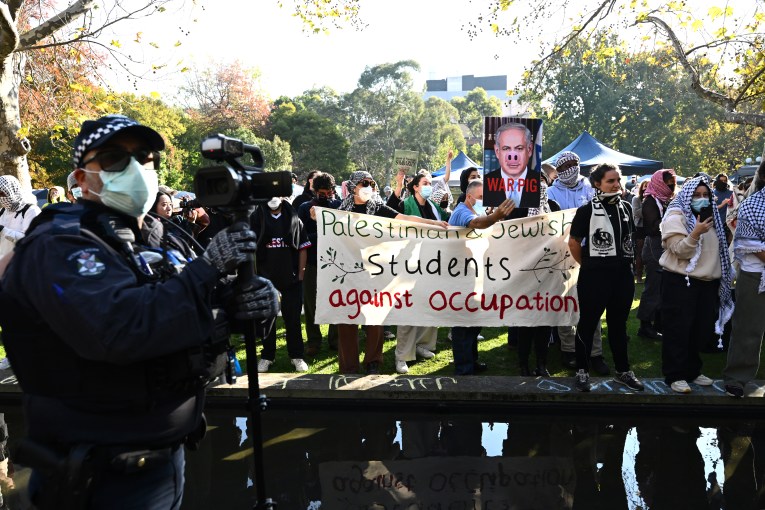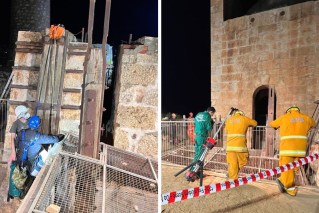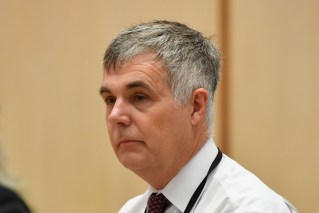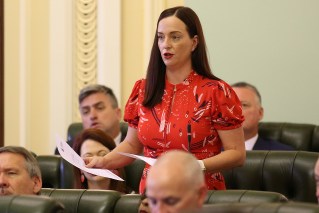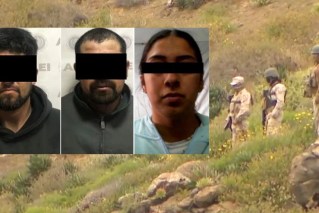Scott Morrison blasted over Uluru ‘insult’

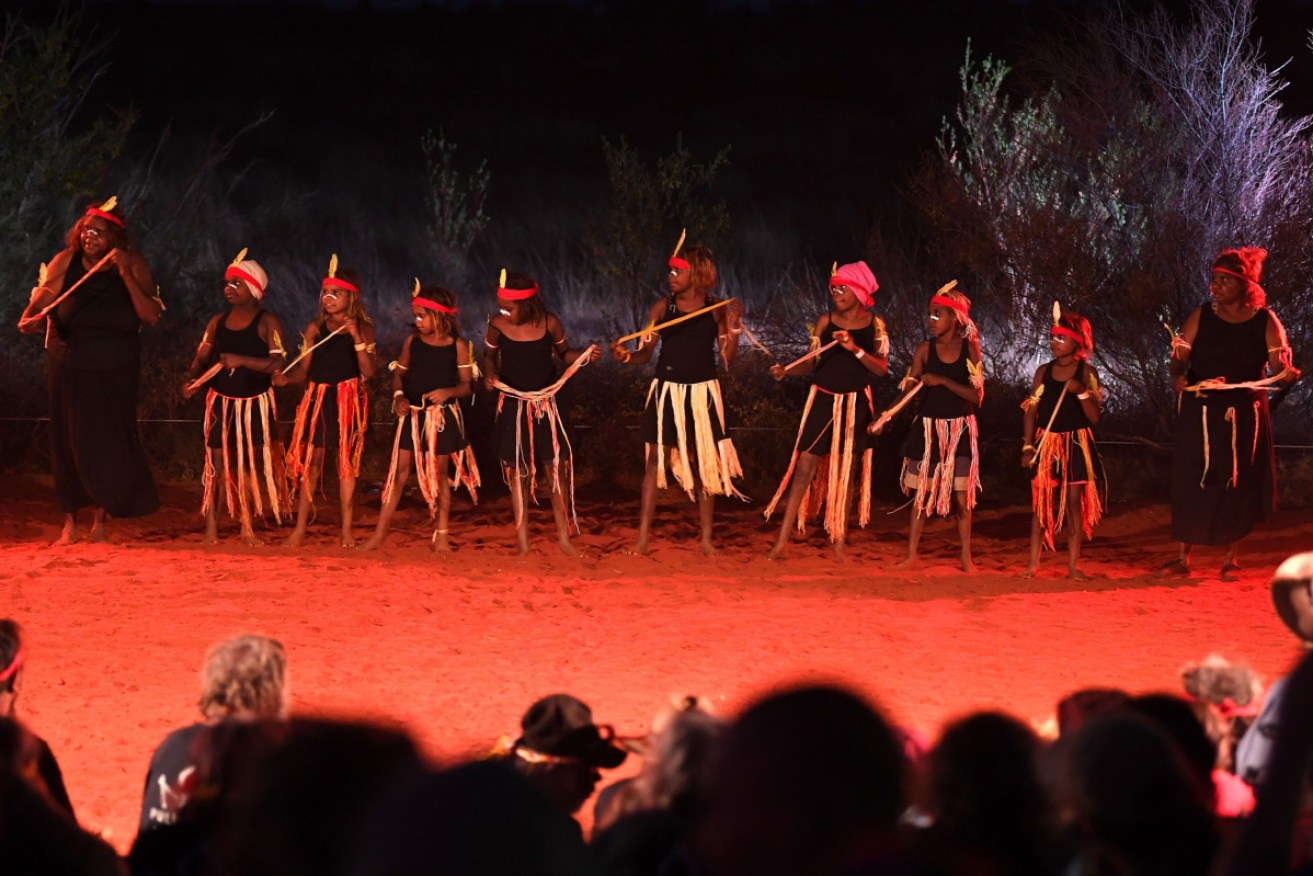
Indigenous Anangu perform during a ceremony marking the permanent ban on climbing Uluru. Photo: Getty
Scott Morrison has defended his absence at Uluru over the weekend as traditional owners celebrated the official end to climbing on the rock.
The Prime Minister instead spent the weekend in Western Australia at a charity event and watching the Australian netball team.
“I can’t be in two places at once,” he said in Sydney on Monday.
Mr Morrison acknowledged the end of the Uluru climb was a significant and timely change.
“The tourism industry will, of course, adjust and move on, and I think will go from strength to strength,” he said.
Environment Minister Sussan Ley was the federal government’s sole representative at weekend’s celebrations near Uluru.
Indigenous Australians Minister Ken Wyatt did not attend and nor did Opposition Leader Anthony Albanese. But four federal Labor MPs were there, including three indigenous members: Pat Dodson, Linda Burney and Malarndirri McCarthy.
Senator Dodson said Mr Morrison’s absence from Sunday’s festivities was an “insult” to Indigenous people.
“He’s ducked us, the Prime Minister, and that’s a real insult to people who hold and carry customary law,” he told the ABC on Monday.
He said the PM had “no appetite for entrenching a voice in the constitution” and that the absence was “a blow to First Nations people”.
“He should also be here to explain to Anangu and all other nations who are here, why he is opposed to a recommendation that comes from here, about entrenching a voice to parliament in the constitution,” Senator Dodson told The Guardian Australia.
Rock legend Peter Garrett has headlined a concert at Uluru to celebrate a new beginning after the rock was closed to climbers over the weekend. https://t.co/dZxCfFJS3G #Uluru #7NEWS pic.twitter.com/JwssCUrKDR
— 7NEWS Canberra (@7NewsCanberra) October 27, 2019
Midnight Oil singer and former environment minister Peter Garrett, who headlined Sunday’s concert, said now that Uluru climbing had been banned it was time for indigenous people to have greater representation in parliament.
“I feel like a weight has been lifted off the nation now we’ve got people off the rock,” he said.
“Traditional owners have never wanted it, now they’ve had their wishes respected at last.
“It’s time for a new relationship with Aboriginal and Islander people, honouring the Uluru Statement from the Heart. Both Prime Minister Morrison and the Opposition Leader need to get together and look closely at this document.
“That is so that Aboriginal and Islander people can take their rightful place in a nation which was theirs and still is.”
The 2017 Uluru Statement, signed by indigenous leaders, calls for an advisory voice to parliament in the constitution. That is opposed by the Morrison government.
Mr Wyatt has asked Labor, One Nation, the Greens and independent politicians to join a new parliamentary working group on indigenous issues, which he will lead.
But the group isn’t a formal committee and will have no decision-making powers. It will not report to the House of Representatives or the Senate.
Members of the group will be decided by Friday, and its first meeting is expected in parliament’s final sitting fortnight of the year.

Tourists rushed to Uluru each day in the lead up to the climb ban. Photo: AAP
At Uluru on Sunday, Northern Territory Chief Minister Michael Gunner recalled the darker side of the rock’s history, including the shooting death of Aboriginal man Yokununna by Constable William McKinnon in 1934. The officer received only a reprimand.
“We have not always respected this place nor have we always respected you,” Mr Gunner said in a speech.
Anangu elders, who were part of the fight to have Uluru handed back to its traditional owners on October 26, 1985, were delighted at the event.
But the Anangu still mostly live in poverty and “while this is a time for celebration, we now have some hard work”, activist Vincent Forrester, 68, said.
He recalls helping his uncle as a child bring water to tourists at Uluru, saying Anangu “always wanted to be involved in the tourism industry”.
Anangu were excited when the hand back came 34 years ago, and had hoped to get jobs and riches from the tourism boom at the luxury Yulara resort town.

Celebrations at Uluru on Sunday. Photo: Getty
But fewer than 30 are believed to work there and leaders such as Central Land Council chairman Sammy Wilson say it is time operators “woke up” and employed Anangu.
The hope is for more guided cultural tours, Anangu working as rangers, and perhaps an annual cultural festival.
“The next chapter will be local Aboriginal park (Uluru Kata Tjuta National Park) managers for Parks Australia,” said Leroy Lester, the son of land rights campaigner Yami Lester.
“Then the next step will be providing visitors with more activities, private enterprise starting more activities now that the climb is finished. But there are other things we can do.”
-with AAP
